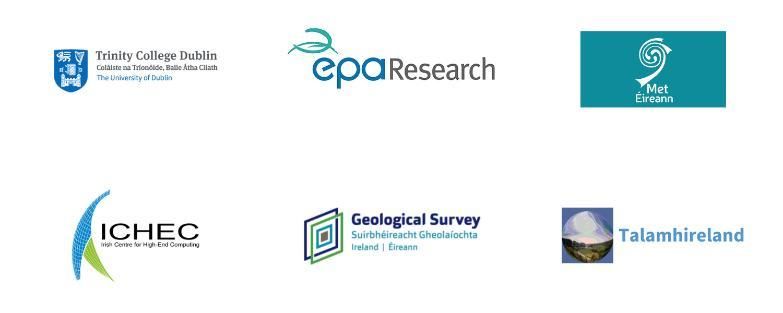AqClimate
/filters:format(webp)/filters:quality(100)/prod01/channel_3/media/tcd/civil-engineering/img/AqClimate-1500X600.png)
Project Team
Principle Investigators:
Dr. Patrick Morrissey (Trinity College Dublin)
Dr. Owen Naughton (SETU Carlow)
Academic Collaborations:
Trinity Researchers:
Dr. Vivek Singh – Research Fellow
Location
Ireland
Partners
Irish Centre for High End Computing (ICHEC)
Theme
Groundwater Recharge Maps, Surface Hydrology, Effective rainfall
Funding
Primary Funding Agency
This project is funded under the EPA Research Programme 2021-2030 [and co-funded by Geological Survey Ireland] . The EPA Research Programme is a Government of Ireland initiative funded by the Department of the Environment, Climate and Communications.
Co-funding Organisations
Geological Survey of Ireland (GSI)
Description
AQCLIMATE
In Ireland, 20-25 % of drinking water supply is dependent on groundwater and which can reach up to 85% in rural areas. Groundwater serves as a source of drinking water and plays a crucial role in maintaining wetlands during droughts. Climate change refers to long-term shifts in temperatures and weather patterns. Changing climate directly affects the natural replenishment of groundwater through changes in precipitation and leakage from surface waters.
The AQCLIMATE project is a collaborative project between Trinity College Dublin and South Eastern Technical University Carlow. The project aims to assess the vulnerability of groundwater recharge to climate change in Ireland. Historically, there has been limited literature available on the impact of climate change focused on groundwater resources. The project focuses on the development of a national-scale quantitative analysis of groundwater recharge and developing thematic maps of it.
The project will develop a comprehensive methodology for creating both current and future groundwater recharge maps, considering seasonal and annual variations, in various climatological scenarios. Over the course of 24 months, AQCLIMATE will generate GIS datasets, Python scripts, and detailed reports. These resources will facilitate continuous assessment and adaptation of groundwater availability under changing climatic conditions. By incorporating the latest data and methodologies, AQCLIMATE strives to produce accurate, high-resolution groundwater recharge maps. These maps will play a crucial role in informing better management practices and policy decisions within the context of climate change.

DISCLAIMER: Although every effort has been made to ensure the accuracy of the material contained in this web page, complete accuracy cannot be guaranteed. Neither the Environmental Protection Agency nor the authors accept any responsibility whatsoever for loss or damage occasioned or claimed to have been occasioned, in part or in full, as a consequence of any person acting or refraining from acting, as a result of a matter contained in this web page.
